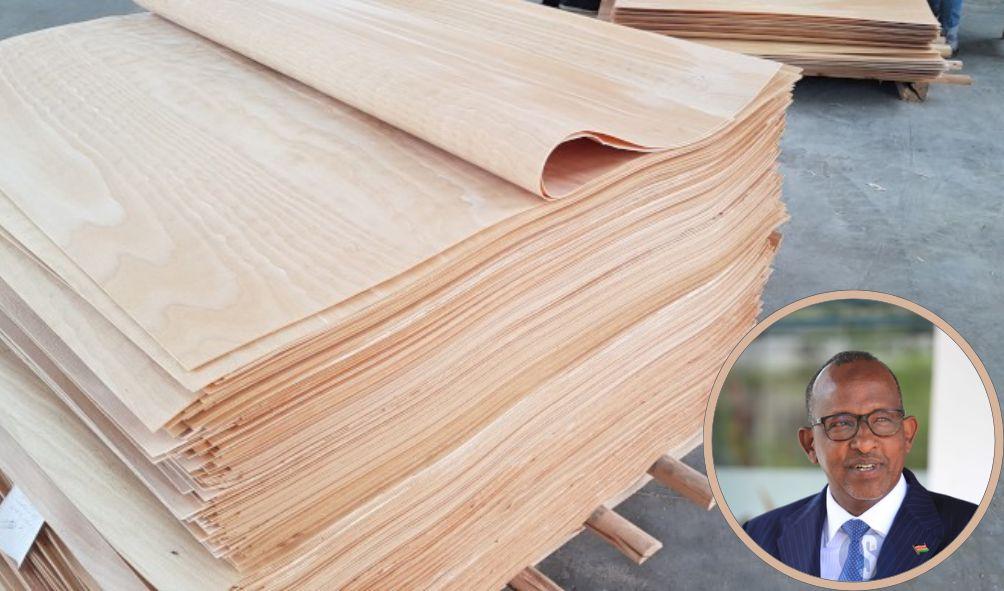CS Aden Duale Issues First Export Ban
Environment Cabinet Secretary Aden Duale has enacted an immediate ban on exporting raw veneer materials to protect the nation’s environmental future.
This measure, announced on Tuesday, August 27, is anticipated to transform Kenya’s timber sector and steer it towards more sustainable practices.
Veneers, thin wood layers often applied to other surfaces, have gained significant value in global trade, especially with markets in India and China.
However, the unregulated and hasty harvesting of trees for veneer production has raised concerns among both environmentalists and local manufacturers.
A recent NTV investigation exposed alarming levels of indiscriminate logging, predominantly of eucalyptus trees, by foreign entities.
This practice endangers Kenya’s reforestation efforts and disrupts the economy by avoiding local tax responsibilities.
For months, Kenya’s timber manufacturers have been sounding the alarm, revealing that the country has lost nearly a billion shillings in revenue in the past three months due to these uncontrolled activities.
Despite a formal ban on eucalyptus exports to China, the trade of eucalyptus veneers has persisted, raising significant concerns about the sustainability of Kenya’s forests.
In his announcement, CS Duale instructed the Kenya Forest Service (KFS) to stop issuing “no objection” letters for raw veneer exports. This directive is expected to immediately halt these exports, curbing premature tree harvesting and aligning with the government’s broader environmental objectives.
The veneer export suspension supports Kenya’s National Landscape and Ecosystem Restoration Strategy.
ALSO READ:
- “Two Groups, One Agenda”: Gachagua Accuses Raila of Secret Political Deals
- Exclusive: Ida Odinga’s 75th Birthday Party in Karen (Photos)
- FKF President Discloses Exact Amount Paid to Harambee Stars Players
- Gachagua’s Ally Senator John Methu Admits Ruto Might Win 2027 Elections
- Maraga Explains Why He Hasn’t Campaigned in Kisii Despite 2027 Bid
This ambitious initiative aims to rehabilitate 10.6 million hectares of degraded land by planting 15 billion trees, to achieve 30 percent tree cover by 2032.
Duale’s decision underscores the government’s strong commitment to environmental sustainability, now being enforced through significant regulatory measures.
Reports of immature tree harvesting from farmlands further emphasize the necessity of this ban.
By halting raw veneer exports, the government aims to ensure trees reach maturity, enhancing their contribution to national reforestation efforts.
The veneer industry in Kenya has been both an economic asset and an environmental challenge.
While exporting veneer sheets and plywood to countries like China generated substantial revenue—$3.87 million (about Ksh498,726,900 in the current exchange rates) in 2023 alone—the environmental toll has been high.
The unchecked logging practices following the lifting of the logging ban have jeopardized years of progress in reforestation and environmental conservation.
CS Duale’s raw veneer export ban marks a pivotal shift from reactive to proactive environmental policy, with the government taking a strong stance against practices threatening the nation’s natural resources.
This decision is expected to inspire industry stakeholders to adopt more sustainable practices and support the government’s mission to restore Kenya’s landscapes.
CS Aden Duale Issues First Export Ban
